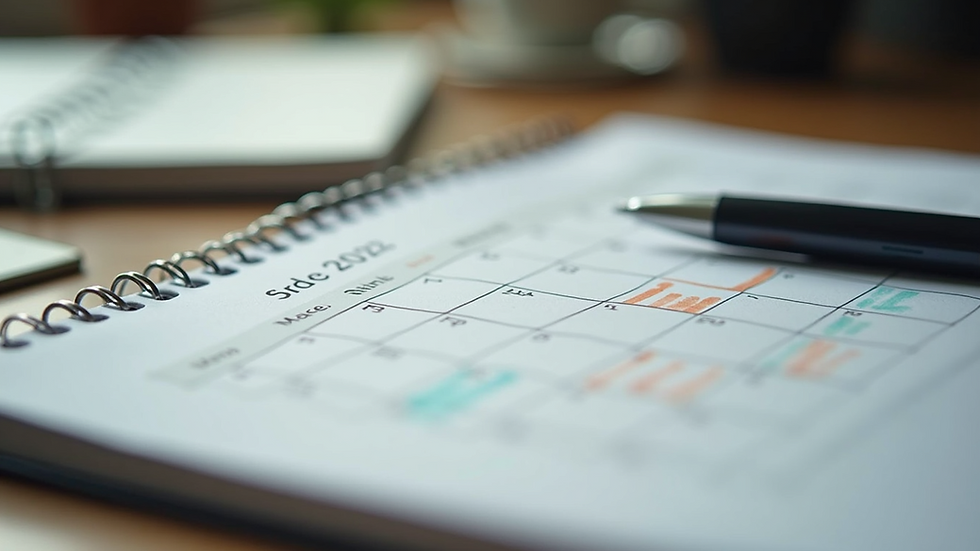Uncovering the Secret: 10 Study Techniques for Mastering the Medical Board Exam
- jrandazz1
- Mar 30
- 4 min read
Studying for your medical board exam can feel overwhelming. It’s one of the biggest milestones in your medical career. However, with the right study techniques, you can boost your understanding and retention of material. Here are ten effective strategies that will help you tackle your exam head-on.
1. Active Recall
Active recall is a technique that involves pulling information from your memory rather than just reading through notes. After you study a topic, try explaining it without looking at your materials. This method reinforces memory traces and aids in retention.
Consider creating flashcards with questions derived from your materials. Testing yourself regularly can drastically improve your retention. Studies show that active recall can boost learning retention rates by 50% or more.
2. Spaced Repetition
Spaced repetition utilizes the concept that information is better remembered when revisited at spaced intervals. Using apps like Anki can help manage this for you. The program adjusts the frequency you see certain information based on your performance.
This technique is particularly beneficial for memorizing large volumes of content typical of medical studies. For instance, if you have 300 terms to learn, spaced repetition can help you retain at least 80% over time, as opposed to cramming, which yields less than 40%.
3. Practice Exams
Taking practice exams or past board questions is one of the most productive ways to prep. By simulating the actual exam environment, you familiarize yourself with the format and identify areas needing improvement.
Try to complete at least two practice exams under timed conditions before the big day. Afterward, take time to review not just the wrong answers, but also the questions you got right to understand your thought process.
4. Study Groups
Joining a study group can enhance motivation and bring diverse viewpoints on challenging topics. Discussing subjects with peers can help clarify ideas, since teaching each other reinforces understanding.
Select a group that stays focused on the study topic. Aim for two-hour sessions, twice a week, to keep momentum and accountability.
5. The Feynman Technique
This method, named after physicist Richard Feynman, involves explaining concepts in simple terms, as if teaching. After studying a topic, try to teach it to someone else or describe it out loud. You'll quickly identify gaps in your understanding and can revisit those areas.
For example, if you're studying pharmacology, explain how a specific drug works to a friend or even just to yourself. This technique enhances retention by emphasizing comprehension over rote memorization.
6. Visual Aids
Creating visuals such as diagrams, charts, and mind maps can simplify complex information. Visual aids help break down difficult concepts, making them easier to comprehend and recall.
For instance, when studying anatomy, sketching the human body and labeling different organs can help you remember their locations and functions. This method caters to various learning styles and reinforces your study efforts.
7. Time Management
Effective time management is essential during your study period. Draw up a study schedule that incorporates focused study times, breaks, and revision. Prioritize subjects based on difficulty and your comfort with the material.
Use planners or digital calendar tools to structure your study sessions. Research indicates that students who maintain structured study plans are likely to achieve study goals 30% more often than those who do not.
8. Healthy Lifestyle Choices
A healthy lifestyle plays a significant role in studying effectively. Make sure you're getting enough sleep, maintaining a proper diet, and exercising regularly. These factors greatly impact cognitive function.
For instance, studies show that even short bursts of physical activity can enhance concentration and aid memory retention. Aim for 30 minutes of exercise a day, and don’t underestimate the benefits of a balanced diet rich in omega-3 fatty acids, which are known to bolster brain health.
9. Focused Study Sessions
Instead of long, continuous study marathons, try focused study periods with specific goals. The Pomodoro Technique is one effective method, where you study for 25 minutes and then take a five-minute break.
Create a distraction-free study environment to maximize these sessions. Research shows that this approach enhances productivity and focus, allowing you to retain information more effectively.
10. Seek Support and Resources
If you start feeling overwhelmed, it’s important to seek help. Whether that means talking to mentors, finding tutors, or exploring online resources, support can significantly ease your study journey.
Use high-quality textbooks and reputable websites to bolster your study materials. Online forums can also be beneficial for clearing doubts and engaging with others facing similar challenges.
Master Your Exam
Preparing for the medical board exam doesn’t have to be an insurmountable task. By employing effective study strategies like active recall and spaced repetition, you’ll streamline your study time and enhance your chances of success.
Maintain healthy habits and a focused approach to ensure you are prepared when the exam day arrives. Remember, consistent effort paired with effective techniques can lead to mastering the material. Embrace these strategies, and you will be ready to succeed on your journey to becoming a licensed medical professional!



Comments